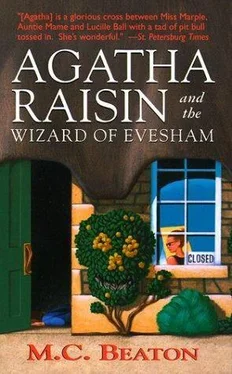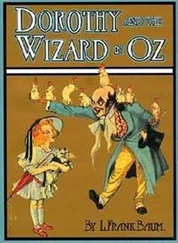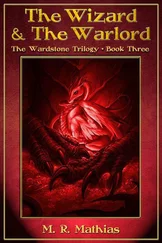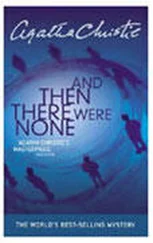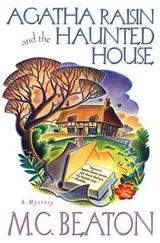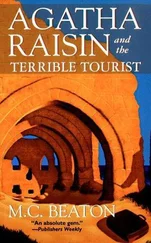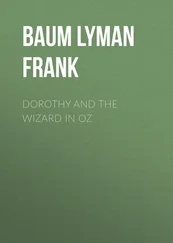She belted through the torrent, not stopping until she had reached her car.
Gasping and sobbing with fright, she drove off. She nearly ran into another car on the Four Pools Industrial Estate and realized she had not switched the windscreen wipers on.
She swung out onto the by-pass and made her way slowly and carefully home, through Broadway, up Fish Hill and along the escarpment past the Chipping Camden road, until she turned left and down through the tunnels of trees to Carsely.
She let herself into her cottage just as the rain began to slacken. She slammed the door shut behind her and slumped down onto the hall floor and took the phone onto her lap. She phoned Charles and said in a shaky voice, “Come over. Something dreadful’s happened.”
She found she was still wearing those gloves. She tore them off and carried them into the living room. She put a whole packet of fire-lighters in the fireplace, then a bunch of kindling and lit the lot. When the flames were roaring up the chimney, she threw the gloves onto the fire. Her shoes! If there was anything left of the house, they would scan the carpets and find her footprints. She took off her shoes and threw them on the fire as well and then sat in front of the blaze, hugging herself and rocking to and fro.
When the doorbell rang, she gave a gulp of relief and went to open it. Charles stood there, as neat and immaculate as ever. She threw herself into his arms and began to cry.
“There now,” he said, shoving her inside. “What have you been up to? What’s that dreadful smell? Have you been burning old boots?”
He propelled her into the living-room. “Sit down. I’ll get us a brandy. You’re all smoky and smelly and soaking wet.”
He poured two brandies and handed one to Agatha. “Now drink that and tell Uncle Charlie what happened. Did he rape you? No, you might have a smile on your face.”
“Don’t be coarse. Are you one of those fools who think women like being raped?”
“Oh my God. You poor thing. It was rape. Look, Agatha. It’s no longer the Dark Ages. We’ll phone the police right now and-”
“IT WASN’T RAPE!” screamed Agatha.
“Well, what was it?”
“Sit down. Listen. I’ll tell you. I can’t believe I’ve been so stupid.”
Charles listened while Agatha told of the collapse of Mr. John and how she had stolen his keys, about the house being set on fire.
“God, you’re idiotic, Aggie,” he remarked. “Someone’s bound to have seen you. You might have got away with it if the house hadn’t been torched. Police, forensics, experts from the insurance company, God, they’ll be crawling over what’s left inch by inch.”
“What am I to do?” wailed Agatha.
“Pray.”
“I mean, what am I really to do?”
“Well, if he was sick to the point of collapse and then someone torched his house, it looks to me as if someone tried to murder him. As they got him to the hospital, he’ll probably be all right, and when he recovers he can maybe tell the police who he thinks did it.”
“Now it’s you who are being stupid,” said Agatha. “If he was a blackmailer, then he won’t want to give the police the names of any suspects in case one of his victims tells all.”
“I know, we could pay him a visit, or rather you pay him a visit and tell him about taking his keys. Throw yourself on his mercy.”
“He might think I torched the house.”
“He probably knows who did it.”
“But what if he’s not a blackmailer, but just an innocent philanderer?”
“I’ve a feeling he’s a crook. But let’s go to the hospital anyway.”
When they got to Evesham Hospital, it was to find that John had been transferred to the Mircester General Hospital.
“May as well go,” said Charles.
They drove in silence to Mircester.
“What’s his second name?” asked Charles when he parked in front of the hospital.
“Shawpart.”
“Okay, here we go.”
They got out of the car.
“Oh, Aggie.”
“What?”
“How stupid we’ve been. You visited him twice, legitimately, so that will explain any fingerprint and footprints or loose hair. And how will they know they’re your fingerprints anyway?”
“I got fingerprinted on one of the earlier cases.”
“Still, it’s not too bad when you think about it. If they find the keys, they’ll think the arsonist left them. Wait, that’s odd.”
“What’s odd?”
“You heard someone come in. You didn’t hear anyone break in.”
Agatha stared at him in amazement. “That’s right.”
“So unless one of the neighbours saw you, you shouldn’t be in any trouble at all. And if it’s food poisoning, there won’t be such a fuss. He’s probably sitting up in bed, putting in his contact lenses.”
“I didn’t know he wore contact lenses.”
“Aggie, those unnaturally blue eyes.”
“So that’s why when I found him collapsed in the loo his eyes had gone grey?”
“Exactly.” He took her arm. “I make a better detective than you any day.”

THEY walked together into the hospital and up to the reception desk. “We’ve called to visit John Shawpart,” said Charles.
She checked her records. “He’s in intensive care. Are you relatives?”
“I’m his sister,” said Agatha, and Charles groaned inwardly.
“If you go up to intensive care, someone will help you.”
“What the hell did you say that for?” hissed Charles as they walked away.
“I can’t leave here without knowing what’s up with him.”
A nurse was sitting at a desk outside the intensive care unit.
“We’ve come to ask about Mr. Shawpart,” said Agatha.
“Are you family?”
“His sister.”
“But surely the police told you… I am so sorry. Mr. Shawpart died two hours ago.”
“What of?”
“Some sort of poisoning, but we will know definitely after the autopsy.”
“Thanks,” said Agatha, seizing hold of Charles’s arm and turning to walk away.
“Wait a minute,” said the nurse sharply. “I’ll need your names.”
“In shock,” babbled Agatha and scurried off with Charles.
When they were outside, Charles said severely, “You seem hell-bent on getting yourself into deeper water. The police will be given a description of you.”
“Never mind that. Someone must have poisoned him.”
“It could still be food poisoning. People do die of food poisoning. He might have had a dicky heart. We’ll need to wait and see.”
“Let’s drive past his house and see how much of it is left.”
“This is getting tiresome,” grumbled Charles. “Oh, very well.”
Agatha sat as he drove, her mind racing. She remembered James saying in Cyprus that she solved cases only by blundering about until the murderer betrayed himself, and that had hurt. Now it looked as if it were true. But it could not be murder, must not be murder.
When they reached the Cheltenham Road in Evesham and approached the house, they could see the police tape that cordoned off the blackened shell. They slowed down as they went past. A policeman on duty stared at the car suspiciously and Charles sped off.
“There wasn’t much of that left,” he said. “That noise you heard, that gurgling sound, must have been petrol.”
“Looks like it,” said Agatha wearily.
“Cheer up. There won’t be much trace of anything left.”
“Including who he was blackmailing, if he was blackmailing.”
“All we can do is wait and see.”
Agatha waited all the next day but no policeman came. By the end of the second day, she was beginning to relax, beginning to think it might have been a simple case of food poisoning, when a ring at the doorbell made her jump.
Читать дальше
